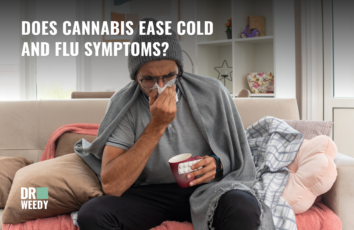Can You Smoke Weed While Taking Antibiotics? What You Need To Know
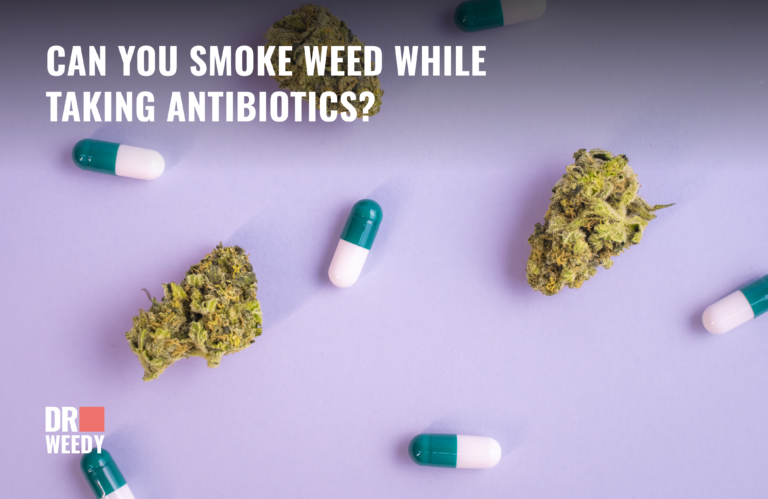
While antibiotics can be very helpful for fighting dangerous infections, some people wonder if it’s safe to combine them with cannabis use. The good news is that in most cases, taking antibiotics and using cannabis is not problematic. Though antibiotics work in different ways to kill or stop bacteria, there are minimal identified contraindications with cannabis.
The major cannabis compounds THC and CBD go through metabolic pathways that could theoretically interact with some types of antibiotics. However, clinical studies directly analyzing these potential interactions are limited, and most evidence and expert opinions suggest using antibiotics and cannabis safely with a few reasonable precautions. So rather than avoiding cannabis completely when on a course of antibiotics, be aware of the considerations around different antibiotic types and delivery methods.
How Do Antibiotics Work?
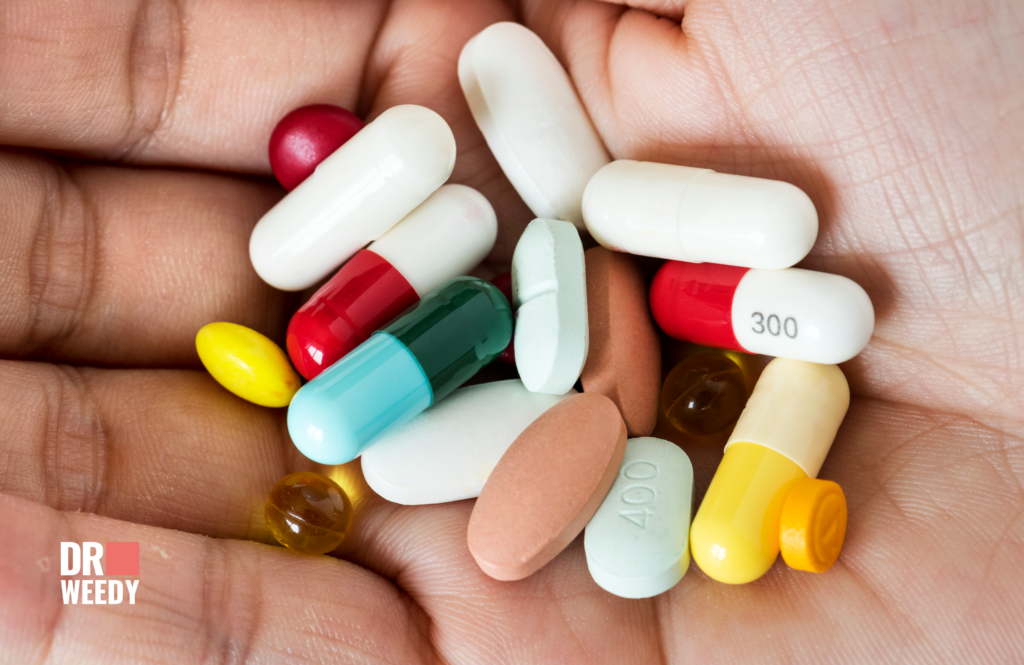
Antibiotics are commonly prescribed medications used to treat bacterial infections. They work by killing the bacteria or preventing them from multiplying further. Some common infections that antibiotics target include pneumonia, urinary tract infections, skin infections, strep throat, and more.
Antibiotics fight infections in a few key ways:
- Bactericidal antibiotics kill bacteria directly
- Bacteriostatic antibiotics slow or stop bacteria from multiplying
- Broad-spectrum antibiotics target a wide range of bacteria
- Narrow-spectrum target certain bacterial strains
Some common types of antibiotic medications include:
- Penicillins: amoxicillin, flucloxacillin
- Cephalosporins: cefadroxil, cefalexin
- Tetracyclines: doxycycline, lymecycline
- Macrolides: azithromycin, erythromycin
- Aminoglycosides: gentamicin, tobramycin
- Sulfonamides and trimethoprim: co-trimoxazole
Antibiotics work by interfering with critical bacterial cell processes, attacking their cell walls, or inhibiting protein production. This ultimately kills the bacteria or stops them replicating further.
Each antibiotic can work slightly differently, which is why doctors prescribe specific ones tailored to the particular bacterial infection at hand.
Do Antibiotics Interact With Weed?
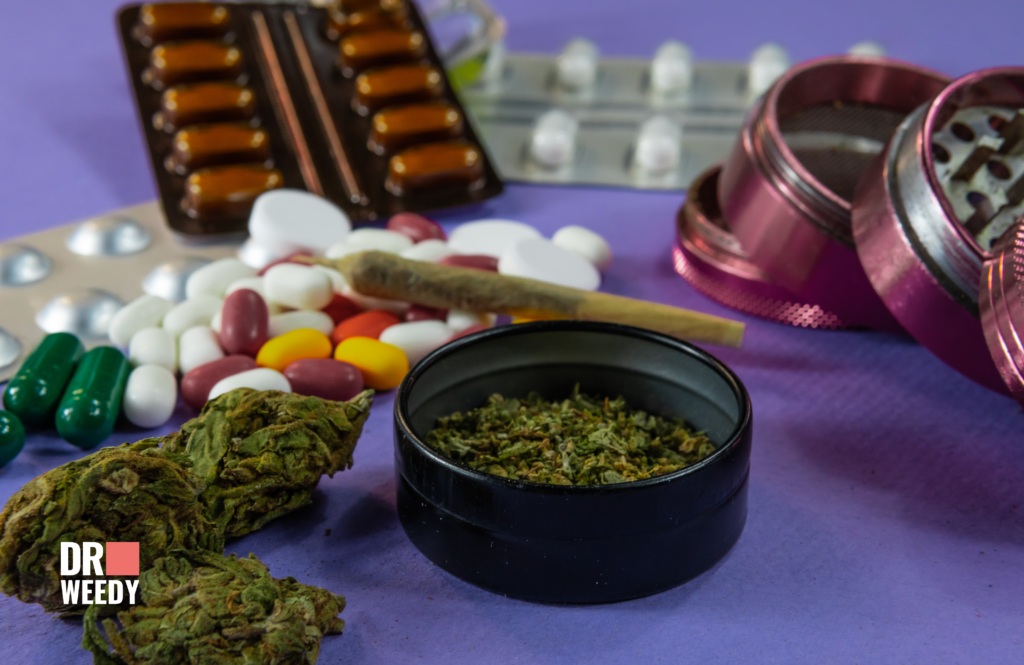
Now that we’ve covered some antibiotic basics, let’s discuss how they may potentially interact with compounds found in cannabis:
Tetrahydrocannabinol (THC) – THC is the well-known psychoactive compound in cannabis responsible for the “high” feeling from marijuana. Studies show THC and other plant cannabinoids are metabolized in the body by cytochrome P450 enzymes (mainly CYP3A4 and CYP2C9).
Certain antibiotics are metabolized by these same enzymes, including:
- Erythromycin
- Clarithromycin
- Telithromycin
- Ciprofloxacin
So in theory, using THC along with these antibiotics could either increase side effects or impact drug concentrations in the body. However, more studies directly analyzing these interactions are still needed.
Does CBD interact with antibiotics?
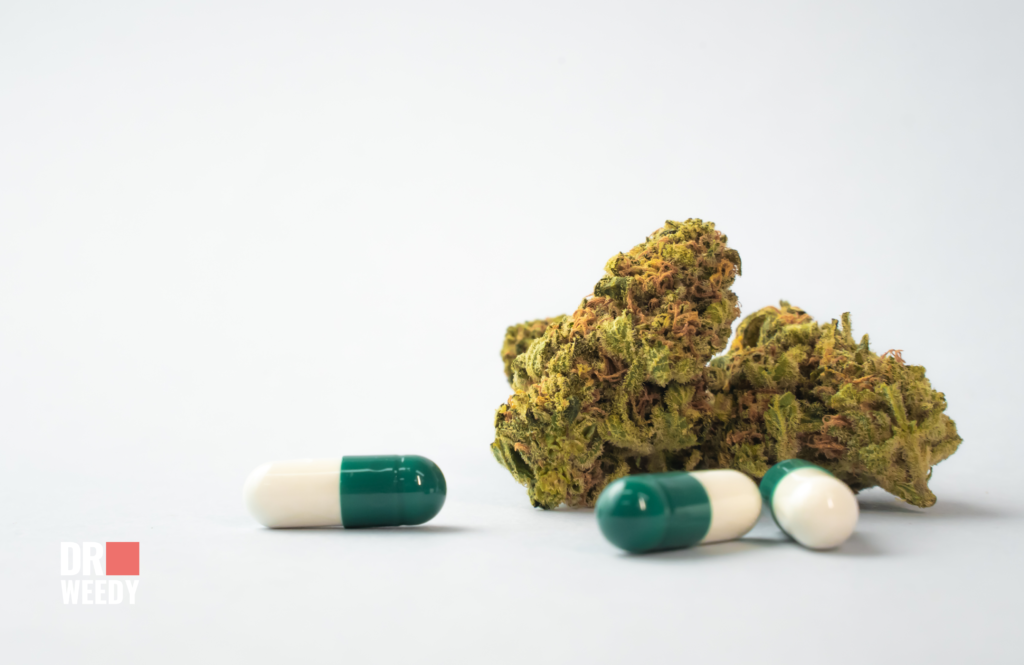
Cannabidiol (CBD) – CBD is another key compound in cannabis that does not produce psychoactive effects. Research indicates CBD inhibits the CYP3A4 enzyme used to metabolize many medications in the liver. CBD is also metabolized by CYP3A4 and CYP2C19.
So similar risks theoretically exist regarding CBD interactions with antibiotics using those pathways. But again, clinical trials remain limited for guidance on actual impacts.
While cannabis may not directly reduce most antibiotics’ efficacy at normal doses, risks around enzyme inhibition leading to heightened side effects are possible depending on the antibiotic type.
Examples of Cannabis-Antibiotic Interactions
While major negative interactions are limited, some antibiotics have shown measurable impacts on cannabis compound levels in early studies:
Sulfamethoxazole
- Interaction: This antibiotic, a CYP2C9 inhibitor, may increase THC levels, but does not affect CBD levels.
- Adverse Effects: Sulfamethoxazole (SMX) may boost the psychoactive effects of marijuana (the “high”).
Rifampin
- Interaction: The tuberculin antibiotic rifampin acts as a CYP3A4 inducer that decreases THC concentrations by 20%. Similarly, it may drop CBD levels by 60%.
- Adverse Effects: In those taking CBD to treat seizures, concomitant administration of rifampin may decrease marijuana’s efficacy. The clinical significance of the THC level drop remains to be studied further.
Can Cannabis Fight Bacteria?
Research indicates that certain cannabinoids, such as THC (Tetrahydrocannabinol), CBD (Cannabidiol), CBG (Cannabigerol), and CBC (Cannabichromene), may fight specific bacteria through various mechanisms:
- Disrupting bacterial cell membrane integrity
- Binding to bacterial proteins and inhibiting enzyme action
- Instigating oxidative stress in bacterial cells
- Modulating the immune system’s antibacterial response
For example, studies have shown the cannabinoid CBG effective against methicillin-resistant Staphylococcus aureus (MRSA). And THC helped weaken bacteria that causes gonorrhea and meningitis infections.
These antibacterial properties are promising. However, most current studies are limited to cells in petri dishes. More clinical trials in humans are still needed to confirm applications for treating antibiotic-resistant superbug infections.
Is It Safe to Smoke Weed on Antibiotics? Key Considerations
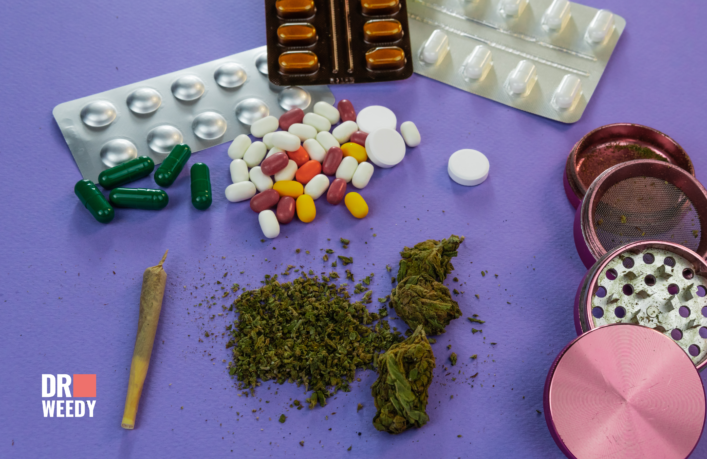
Given the enzyme interaction risks outlined, is it safe to smoke marijuana while on a prescription antibiotic regimen? Here are some key considerations:
- Reason for antibiotics – What type of bacterial infection are you taking antibiotics to treat? If it’s a respiratory illness, smoking cannabis could slow healing of lungs and airways.
- Antibiotic type – As covered, some antibiotic classes process through liver pathways also used by cannabis compounds. These pose higher interaction risks to consider before combining.
- Other medications – If you take other prescriptions beyond antibiotics, review if weed could interact with those too. Combining multiple drug-cannabis interaction risks is not advised.
- Time between use – Allow significant time between taking antibiotics doses and consuming cannabis. At minimum 2 hours separation is recommended if combining.
- Consult your doctor – Discuss with your healthcare provider about your marijuana and antibiotic use. Follow their guidelines per your health history.
And if smoking specifically is still a concern while on antibiotics, consider alternative cannabis delivery methods like edibles, oils, or topicals instead during this period.
The Bottom Line
Research indicates interactions exist between some common antibiotics and cannabis compounds like THC and CBD during liver metabolism. However, the scale of these risks across different drug types, doses, and health profiles requires more study.
Early research also shows promising antibacterial properties for cannabis against certain “superbug” infections when used alone or with antibiotics. But again, human trials are needed to confirm applications.
Overall current evidence and expert opinion suggest cannabis and antibiotics can be used together safely in most cases. But they recommend exercising the cautions above and consulting your doctor before doing so.

























